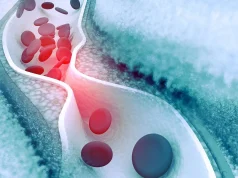Two studies show increased risk of kidney stones with PPI, H2 blocker use; CKD with PPI use
FRIDAY, Nov. 18, 2016 (HealthDay News) — Acid suppression therapy is associated with increased incidence of kidney stones and chronic kidney disease (CKD), according to two studies presented at the annual meeting of the American Society of Nephrology (Kidney Week), held from Nov. 15 to 20 in Chicago.
Pietro Manuel Ferraro, M.D., from the Catholic University of the Sacred Heart in Rome, and colleagues examined the correlation between proton pump inhibitors (PPIs) and histamine receptor-2 (H2) blockers and kidney stone formation using data from 187,330 participants of the Health Professionals Follow-up Study and Nurses’ Health Study I and II. The researchers found that PPI use correlated with higher risk of incident kidney stones after multivariable adjustment (hazard ratio, 1.12). Similar results were seen for H2 blocker use (hazard ratio, 1.13).
Yan Xie, M.P.H., from the VA Saint Louis Health Care System, and colleagues evaluated data for a cohort of 137,310 PPI users and 21,264 H2 blocker users with no history of acute kidney injury (AKI). The researchers found that among those who developed AKI after five-year follow-up, new PPI users had increased odds of incident CKD, estimated glomerular filtration rate (eGFR) decline >30 percent, and 50 percent decline in eGFR or end-stage renal disease, compared with new H2 blocker users (odds ratios, 1.29, 1.24, and 1.19, respectively); the corresponding odds ratios were 1.34, 1.30, and 1.31 for participants without AKI.
“Exercising vigilance in PPI use — even in the absence of AKI — and careful attention to kidney function in PPI users may be a reasonable approach,” Xie said in a statement.
Copyright © 2016 HealthDay. All rights reserved.








